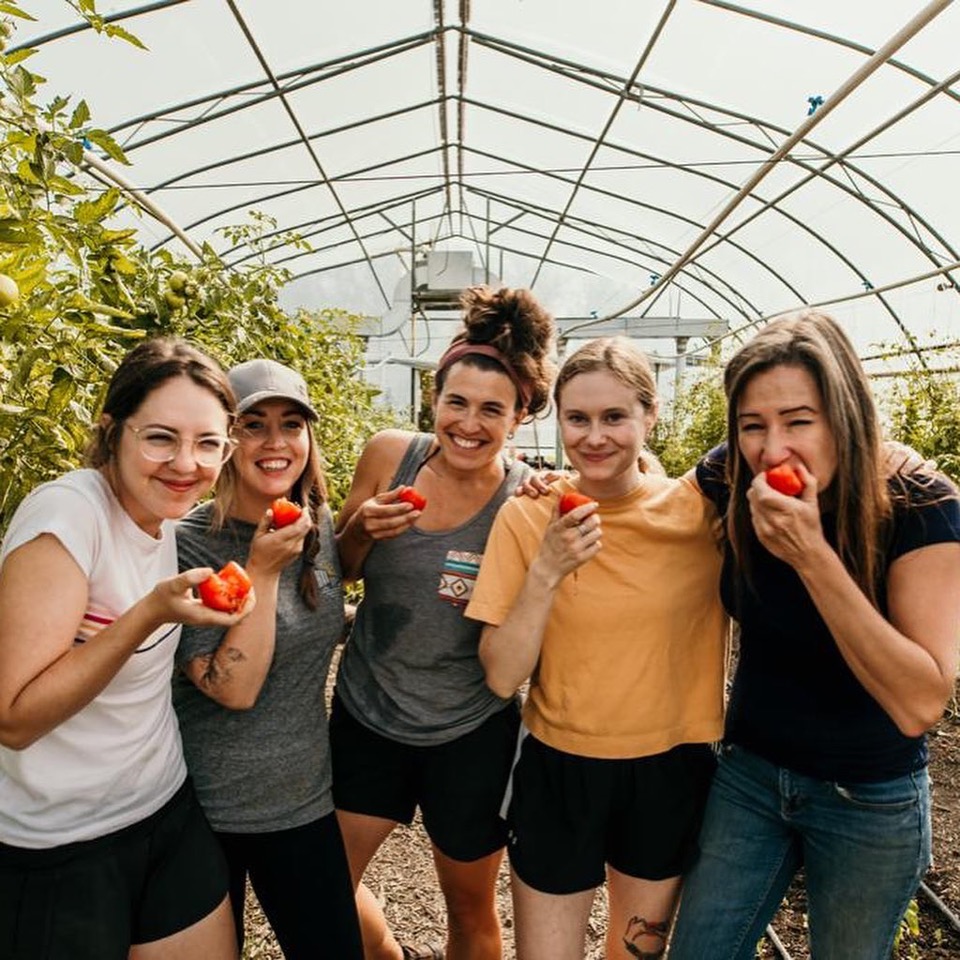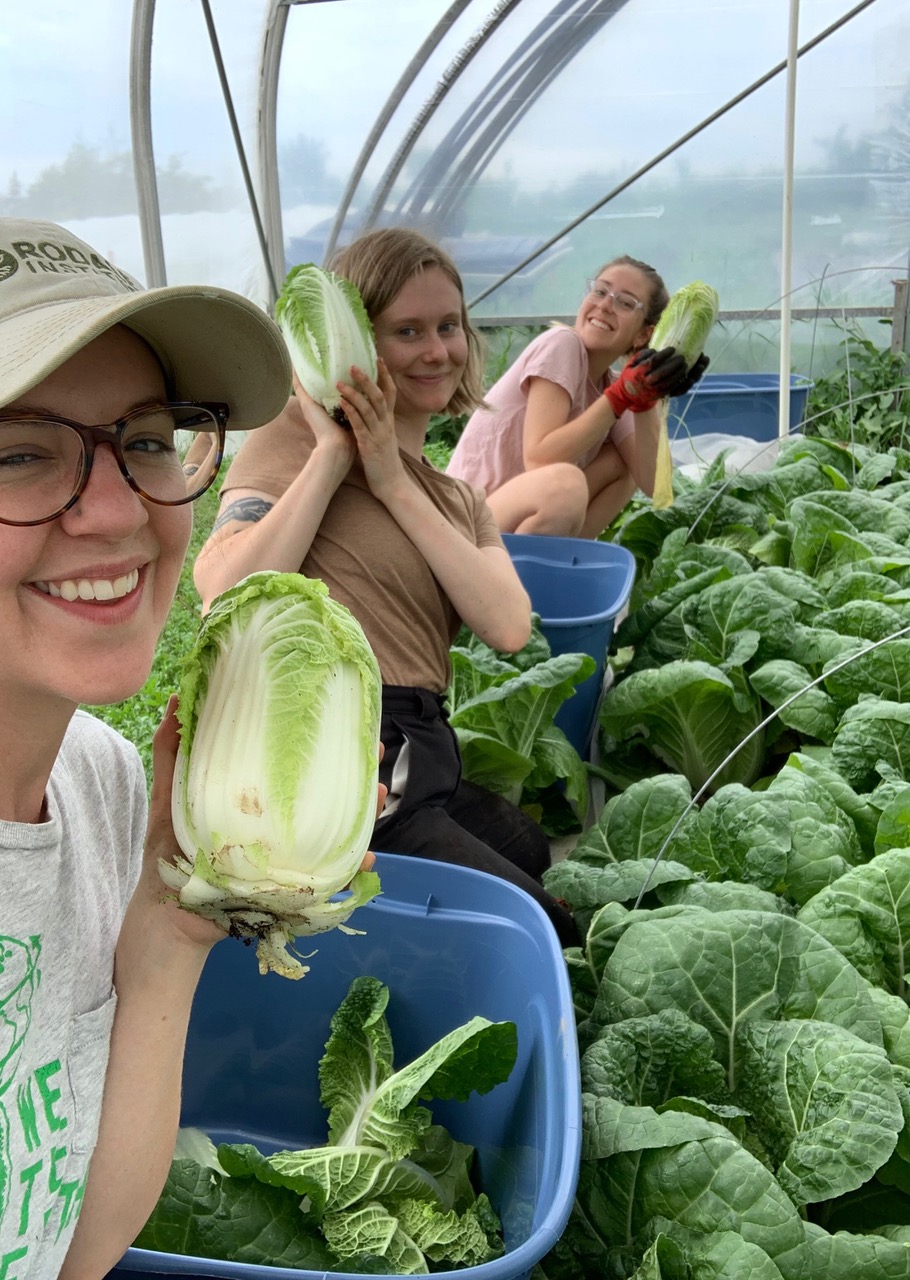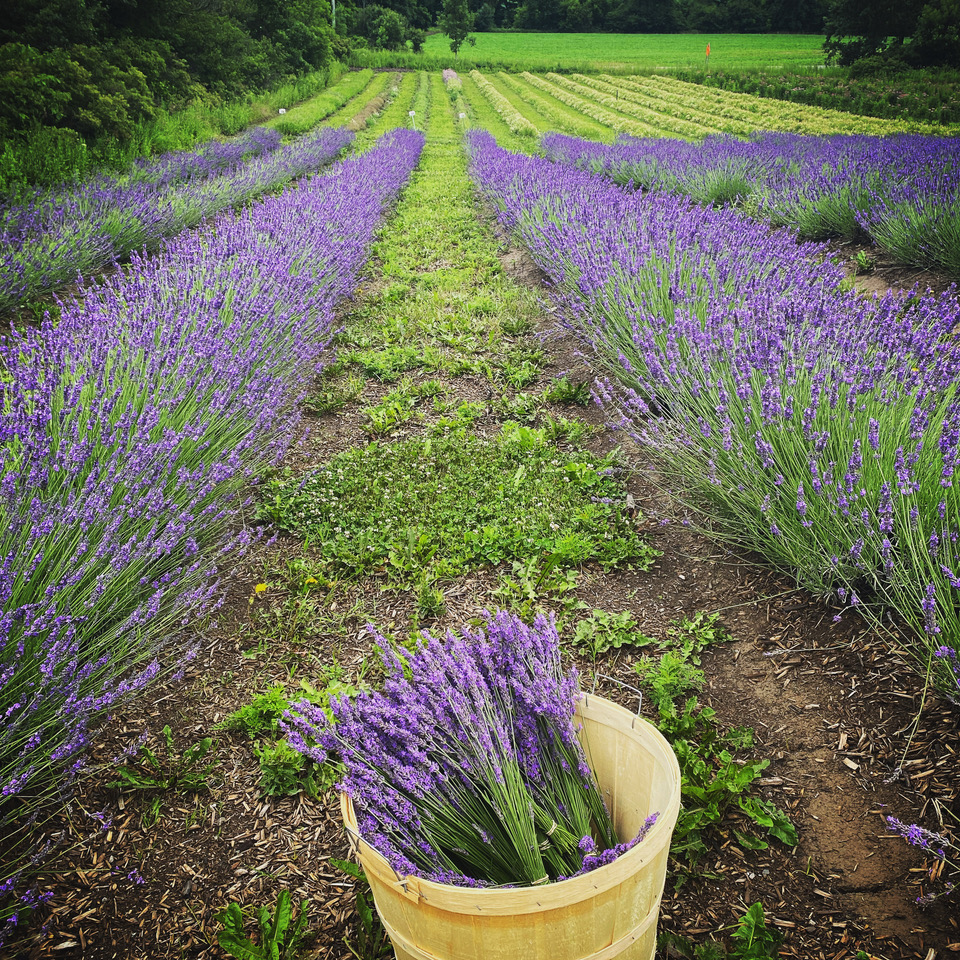Emily Rozema had a feeling the call for resumes she posted to her business’s social media account two summers ago might appeal to certain applicants only. It was the first summer of the pandemic and government funding programs would enable Rozema, who owns Mingle Hill Farms, a certified organic herb, flower and vegetable farm in St. Ann’s, to grow her staff and her business.
The photo she posted with the announcement she was hiring showed a group of women — Rozema’s staff at Mingle Hill at the time — including herself and her daughter, Olivia. “If you see a picture of four women and say you’re hiring, how many guys are going to say, ‘I’m going to work there?’” Rozema said.
The answer to that question was none, aside from the two already on staff: Rozema’s husband, Randy, and another young man who helps out with some of the heavy lifting on the farm. Rozema got eight applications for the seasonal work, all from women. None had farming skills but they did have tenacity. “We gave them all a hoe that day and said, ‘Go,’ and we’ll see who doesn’t come back,” Rozema recalls. “They all came back.”
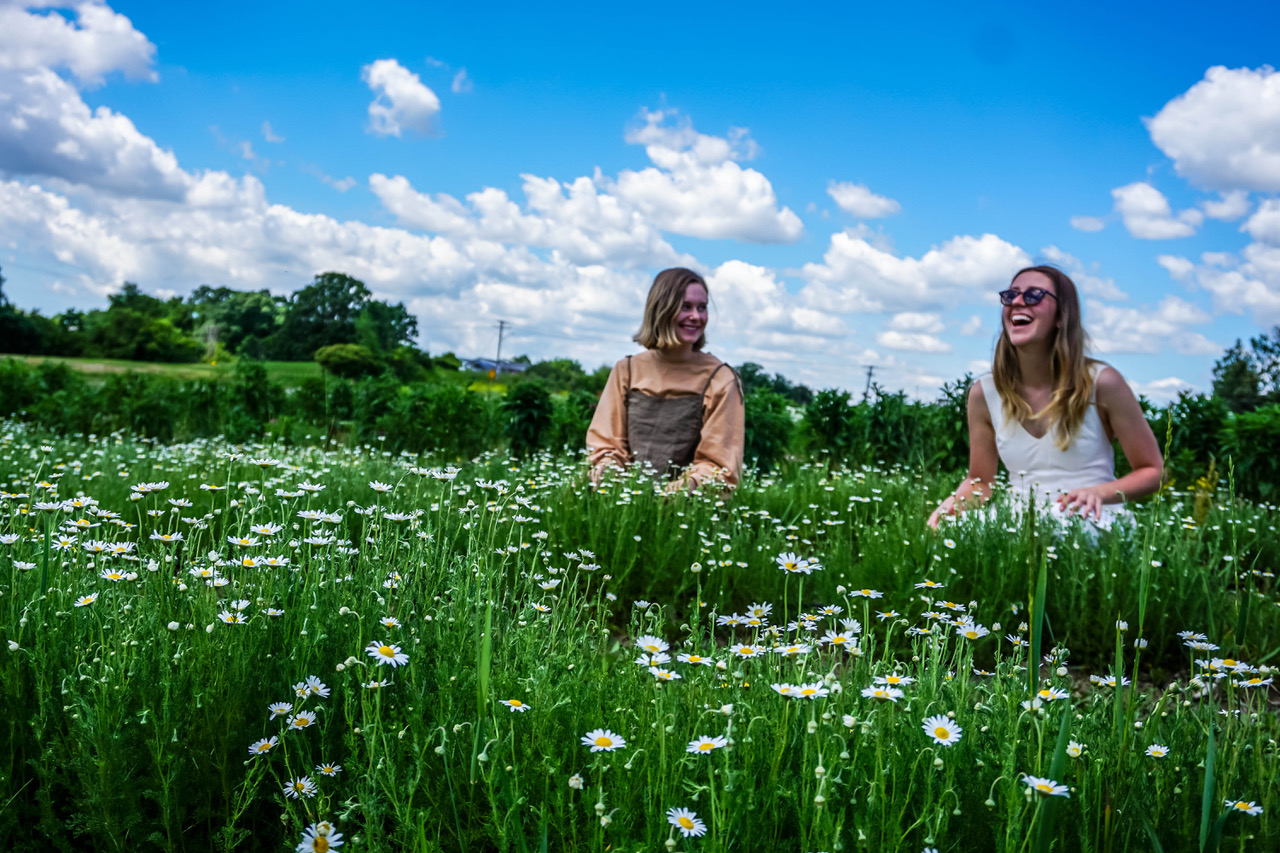
And for good reason. Rozema, whether her workers are women or men, has created a workplace where people feel safe and their lives outside of work are respected. “I just love working with women,” Rozema said. “When we all work together, it’s such an amazing facet. Everyone is very accepting of each other.”
Still, having a staff that are predominantly women-identifying wasn’t her intention. In fact, much about Mingle Hill Farms as it exists today as one of the largest swaths of organic herbs in Southern Ontario, wasn’t part of Rozema’s plan when she started growing wholesale sunflowers in 2008. At the time, Rozema supplied Whole Foods stores in Canada and the U.S. with her certified organic sunflowers. But the sun didn’t alway shine on her business — literally. During a rainy growing season in 2012, her sunflowers didn’t flourish the way she needed them to and she lost her contract to growers in California.
Rozema decided to take a step back from farming, accepting a position at a local women’s shelter instead. She kept her green thumb sated by growing a vegetable garden that was “ridiculously large for the average person” and selling some of her harvests to local chefs. By 2017, Rozema decided to go all in again, repurposing those former sunflower fields into fertile ground for 11,000 lavender plants. She also turned that vegetable patch into a market garden. With some hired help and volunteers, the lavender got planted and vegetables were sold at the Grimsby farmers market.
But again, not everything came up roses.
A harsh winter in 2019 caused Rozema to lose half of her lavender crop. The plants, native to the Mediterranean, couldn’t handle repeated Canadian deep freezes. As a kind of insurance, Rozema decided to fill in the blanks left on her farm with native species of herbs. Mullein, a medicinal herb said to be good for respiratory ailments; sage packed full of essential oils; a potent variety of peppermint that grows like strawberries and offers powerful essential oils; Roman and German chamomiles; and calendula, too, for their healing properties, all took root.
The plan was to develop a skin care line. Then the pandemic hit in March 2020.
Olivia moved home to live with Emily and Randy, and Tia, a Mingle Hill staffer, quarantined with them, too. Together, the three women spent time researching uses for the herbs and experimenting with potential products. “We found these herbs have such beneficial properties, if you infuse them in oil, these beneficial properties come out,” Rozema said.
Since then, Mingle Hill Farms has released several products, including a moisturizer and its flagship healing serum, developed after Olivia came in contact with some poison ivy. Herbs have a huge fan base, it turns out.
“It’s really interesting how much interest there is,” Rozema said about customer response to Mingle Hill products. It doesn’t hurt that they’re also easier to grow than vegetables and provide more income, too, she added. “We had to rethink. Work smarter, not harder — that theory. Unfortunately, the markets were slower because of COVID,” Rozema explained. “We’ll always grow vegetables. We’ve become too used to delicious food, growing thoughtfully, growing carefully. We will always keep our store stocked for others who love local food as well.”
And it will be a strong contingent of women making it happen again this year, including Ashley, a mom who works five-hour shifts each day to have time and energy for her children after work. There’s Hannah, who’s working on her PhD in viticulture, Marli, a new hire, eager to work in Rozema’s supportive environment, and Jenn, who will host workshops and corporate retreats through the spring and summer. And there are the cold calls from others looking for what Mingle Hill offers its staff.
“We get a lot of women emailing, sending me their resume, saying ‘There isn’t a lot of opportunity for me to work with my hands.’ Some work out, some don’t,” Rozema said. “We don’t get a lot of men asking. Some just want a change. I think they want to work someplace they feel safe.”
Still, it’s a tough sell for some who may have worked in more traditional office environments with women, which Rozema, herself, once did. But she’s trying hard to change that perception — of employer and employee — and level the field in the process.
“It was a customer who said, ‘I couldn’t work with a bunch of women. They’re so catty,’” Rozema said. “One of the staff piped up and said ‘Absolutely not. Working with women is the opposite of what you’re thinking.’
“I worked in an office and it could be catty but there were factors contributing to that,” she added. “(Women) didn’t have a voice at the table, whereas now, the workplace is changing. They have a voice at the table.” And the herb farm.
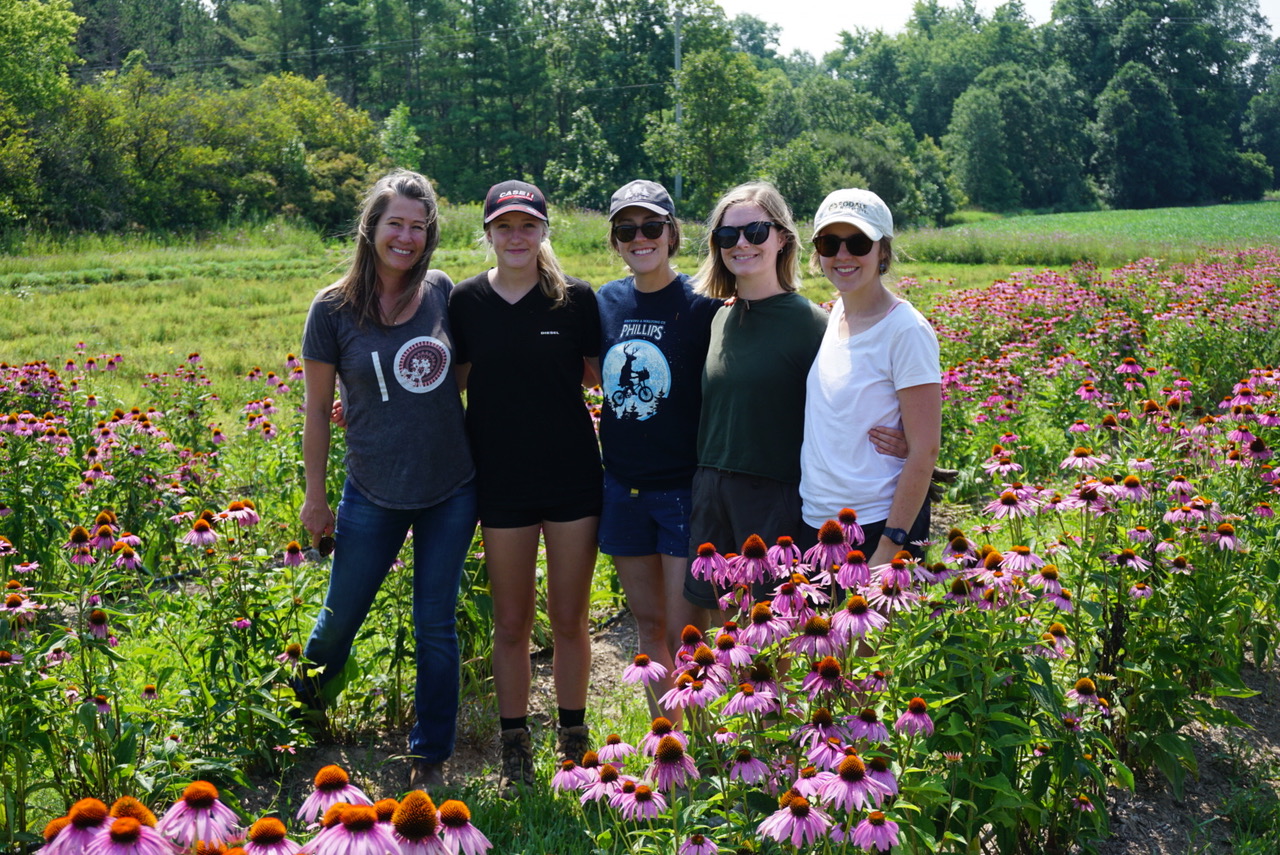
Join us as we continue to follow the Mingle Hill Farms team’s story and cheer them on through Instagram and Facebook.
Special thanks to Tiffany Mayer for writing this piece. Tiffany is a Niagara writer who loves writing about the people making our region a better place.
